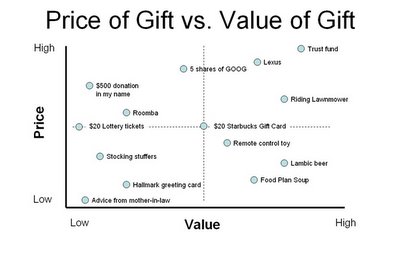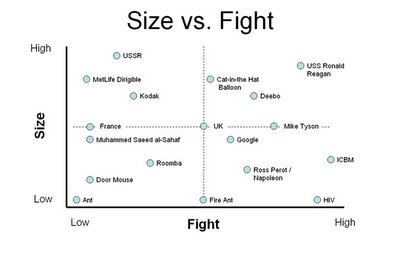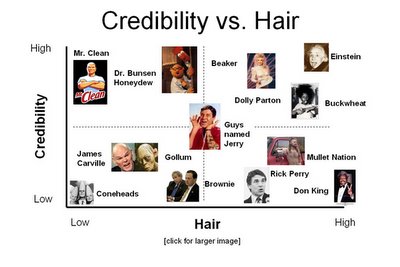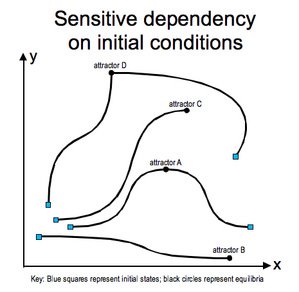Price vs. Value
Saint Jerome, On the Epistle to the Ephesianschurch father & saint (374 AD - 419 AD)
Ah, tis the season of giving and receiving. With Christmas past, and the and the orgy of food and drink in its trough of disillusionment, I thought I'd take stock of gifts given, received, or just wished for...

Why do people give greeting cards? Do you really need someone else to come up with a pithy statement of sentiment or humor to convey your feelings for someone? And is it really worth $2.99 plus tax? I think the greeting card industry is a self perpetuating fraud on the American psyche. Have you noticed the growth of "Card Giving" events over the last few decades? Grandparent's Day (9/10) , National Bosses Day (10/16), Friendship Day (8/7), Administrative Professionals Day(4/26), National Mentoring Month!?
And while we are looking at gift horses, I don't really get the whole stocking-stuffer stuff. There are a thousand presents under the tree, and yet the opening can't commence until we dispose of the stockings. At my house, it seems that the stocking stuffers are getting more in quantity and expense each year. The presents under the tree are not enough; Santa has to spend 50 bones filling each of the stockings hung with care.
"The great art of giving consists in this: the gift should cost very little and yet be greatly coveted, so that it may be the more highly appreciated."
My top three picks for gifts that packed a punch were a remote control boat that Santa gave my daughter, A copy of Food Plan Soup (which I gave myself) , and 4 bottles of Lambic Beer (props to willy78746). Food Plane Soup was recently published by a ex-coworker and tells of his wanderings following being laid-off from our last dot-bomb.
No - I did not get 5 shares of GOOG. But if I had $2100 to invest in GOOG, Id sell it short. Mark my words boys and girls, GOOG will be cheaper for Christmas 2006 than it is now.
No one gave me a trust fund either :-( I think I'll make getting one my New Year's resolution.




 And speaking of pussies: Did Kodak wave the white flag or what? The leader in film and photography - now a shell of it's former self resorting to buying cool startups (
And speaking of pussies: Did Kodak wave the white flag or what? The leader in film and photography - now a shell of it's former self resorting to buying cool startups (









